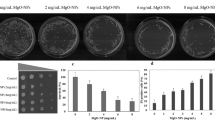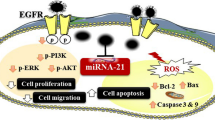Abstract
Heat shock proteins (HSPs) are available and/or induced for the survival of all organisms, including eukaryotic, prokaryotic, and plants, from higher temperature stresses. They are the chaperone proteins that protect all cells against heat, as the name implies. In addition to thermal stress, they also protect them from chemical, physical, and other stresses, including exposure to oxidative stress, nutritional deficiencies, ultraviolet radiation, ethanol, viral infection, ischemia–reperfusion injury, and cancer-related stresses. They are classified based on their molecular weights in kDa, such as HSP90 and HSP70. In our label-free, high-throughput, quantitative LC–MS/MS-based proteomic studies of MDA-MB-231, human, triple-negative breast cancer cells, treated with electrical pulses (EP) and cisplatin (CsP), we identified a number of HSPs, such as HSP90AA1, and others to be significantly downregulated in EP + CsP, compared to CsP alone. This indicates that cells will undergo apoptotic cell death and hence could cause effective cancer cure/treatment. Considering that over 2 million new cases and over 600,000 deaths in 2020, of which ~ 15% are TNBC, heat shock proteins could be the untapped resources, available for the next biomarkers and/or inhibitors for new/additional therapies.






Similar content being viewed by others
Data Availability
All data sources could be available to readers on request.
References
Hyslop, et al. (2013). Population and target considerations for triple-negative breast cancer clinical trials. Biomarkers in Medicine, 7(1), 11–21.
Klimczak, M., Biecek, P., Zylicz, A., & Zylicz, M. (2019). Heat shock proteins create a signature to predict the clinical outcome in breast cancer. Scientific reports, 9(1), 1–15.
Velloso, et al. (2019). Proteome profiling of triple negative breast cancer cells overexpressing NOD1 and NOD2 receptors unveils molecular signatures of malignant cell proliferation. BMC Genomics, 20, 152.
Clover, et al. (2020). Electrochemotherapy in the treatment of cutaneous malignancy: Outcomes and subgroup analysis from the cumulative results from the pan-European International Network for sharing practice in Electrochemotherapy database for 2482 lesions in 987 patients (2008–2019). European Journal of Cancer, 138, 30–40. https://doi.org/10.1016/j.ejca.2020.06.020
Hansen, H. F., Bourke, M., Stigaard, T., Clover, J., Buckley, M., O’Riordain, M., & Gehl, J. (2020). Electrochemotherapy for colorectal cancer using endoscopic electroporation: A phase 1 clinical study. Endoscopy international open, 8(2), E124.
Mittal, L., Raman, V., Camarillo, I. G., & Sundararajan, R. (2017). Ultra-microsecond pulsed curcumin for effective treatment of triple negative breast cancers. BBRC, 491(4), 1015–1020.
Mittal, L., Aryal, U. K., Camarillo, I. G., Ferreira, R. M., & Sundararajan, R. (2019). Quantitative proteomic analysis of enhanced cellular effects of electrochemotherapy with Cisplatin in triple-negative breast cancer cells. Scientific reports, 9(1), 1–16.
Calderwood, S. K. (2010). Heat shock proteins in breast cancer progression–A suitable case for treatment? International Journal of Hyperthermia, 26(7), 681–685.
Ciocca, D. R., & Calderwood, S. K. (2005). Heat shock proteins in cancer: Diagnostic, prognostic, predictive, and treatment implications. Cell stress & Chaperones, 10(2), 86–103.
Calderwood, S. K. (2017). Heat shock proteins and cancer: Intracellular chaperones or extracellular ligands? Philosophical Transactions of the Royal Society B: Biological Siences, 373, 20160524.
Zoppino, F. C., Guerrero-Gimenez, M. E., Castro, G. N., & Ciocca, D. R. (2018). Comprehensive transcriptomic analysis of heat shock proteins in the molecular subtypes of human breast cancer. BMC Cancer, 18(1), 1–17.
Calderon, P. B., Beck, R., & Glorieux, C. (2019). Targeting HSP90 family members: A strategy to improve cancer cell death. Biochemical Pharmacology, 164, 177–187.
Lang, et al. (2019). Heat shock proteins are essential components in transformation and tumor progression: Cancer cell intrinsic pathways and beyond. International Journal of Molecular Sciences, 20, 4507.
Pockley, A. G. (2003). Heat shock proteins as regulators of the immune response. Lancet, 362, 469–476.
Neckers, L. (2007). Heat Shock Proten 90: The cancer chaperone. Journal of Biosciences, 32(3), 517–530.
Jagadish, et al. (2016). Heat shock protein 70–2 (HSP70-2) is a novel therapeutic target for colorectal cancer and is associated with tumor growth. BMC Cancer, 16, 561.
Biebl, M. M., & Buchner, J. (2019). Structure function and regulation of the HSP90 machinery. Cold Spring Harbor perspectives in biology, 11(9), a034017.
Chehab, et al. (2015). Targeting HSP90 in urothelial carcinoma. Oncotarget, 6(11), 8454–8473.
String-db.org. accessed March 2021.
http://geneontology.org/docs/ontology-documentation/. Accessed July 2021.
Genecards.org, accessed April 2021.
Carmona-Saez, P., Chagoyen, M., Tirado, F., Carazo, J. M., & Pascual-Montano, A. (2007). GENECODIS: A web-based tool for finding significant concurrent annotations in gene lists. Genome biology, 8(1), R3.
heatmap.ca, accessed June 2021
Yun et al. Heat shock proteins: Agents of cancer development and therapeutic targets in anti-cancer therapy. Cells 2019.
Cellular response to stress pathway https://reactome.org/PathwayBrowser/#/R-HSA-2262752
Picard D. HSP facts & Literature – Cytosolic heat shock protein 90. https://www.picard.ch/downloads/Hsp90facts.pdf. Accessed Mar 2021.
Li, et al. (2019). Interaction of hSP90AA1 with phospholipids stabilizes membranes under stress conditions. BBA-Molecules, 1861, 457–465.
Kaur et al. (2015). Heat shock proteins in Triple-Negative breast cancer (TNBC) treatment. Ch 8 in Heat shock protein-based therapies, Heat shock proteins 9, Springer International Publishing Switzerland.
Kou, et al. (2018). Simvastin functions as a heat shock protein 90 inhibitor against triple- negative breast cancer. Cancer Science, 109, 3272–3284.
Author information
Authors and Affiliations
Contributions
Concept and design: R Sundararajan.
Data analysis: P Giri, R Sundararajan, IG Camarillo.
Manuscript: All.
Corresponding author
Ethics declarations
Ethics Approval and Consent to Participate
Not applicable.
Conflict of Interest
The authors declare no competing interests.
Additional information
Publisher's Note
Springer Nature remains neutral with regard to jurisdictional claims in published maps and institutional affiliations.
Rights and permissions
About this article
Cite this article
Sundararajan, R., Giri, P., Madhivanan, S. et al. Cisplatin-based Electrochemotherapy Significantly Downregulates Key Heat Shock Proteins in MDA-MB-231-Human Triple-Negative Breast Cancer Cells. Appl Biochem Biotechnol 194, 517–528 (2022). https://doi.org/10.1007/s12010-021-03703-9
Received:
Accepted:
Published:
Issue Date:
DOI: https://doi.org/10.1007/s12010-021-03703-9




